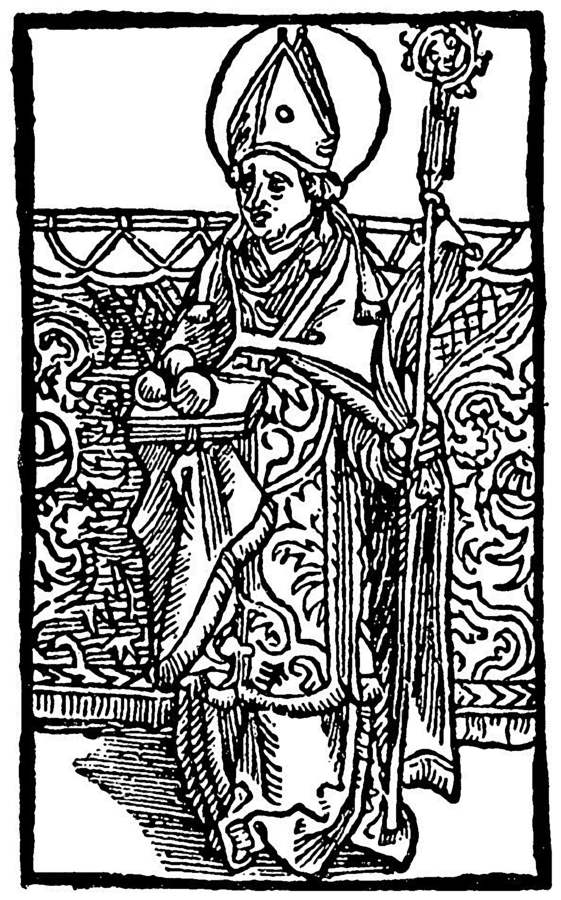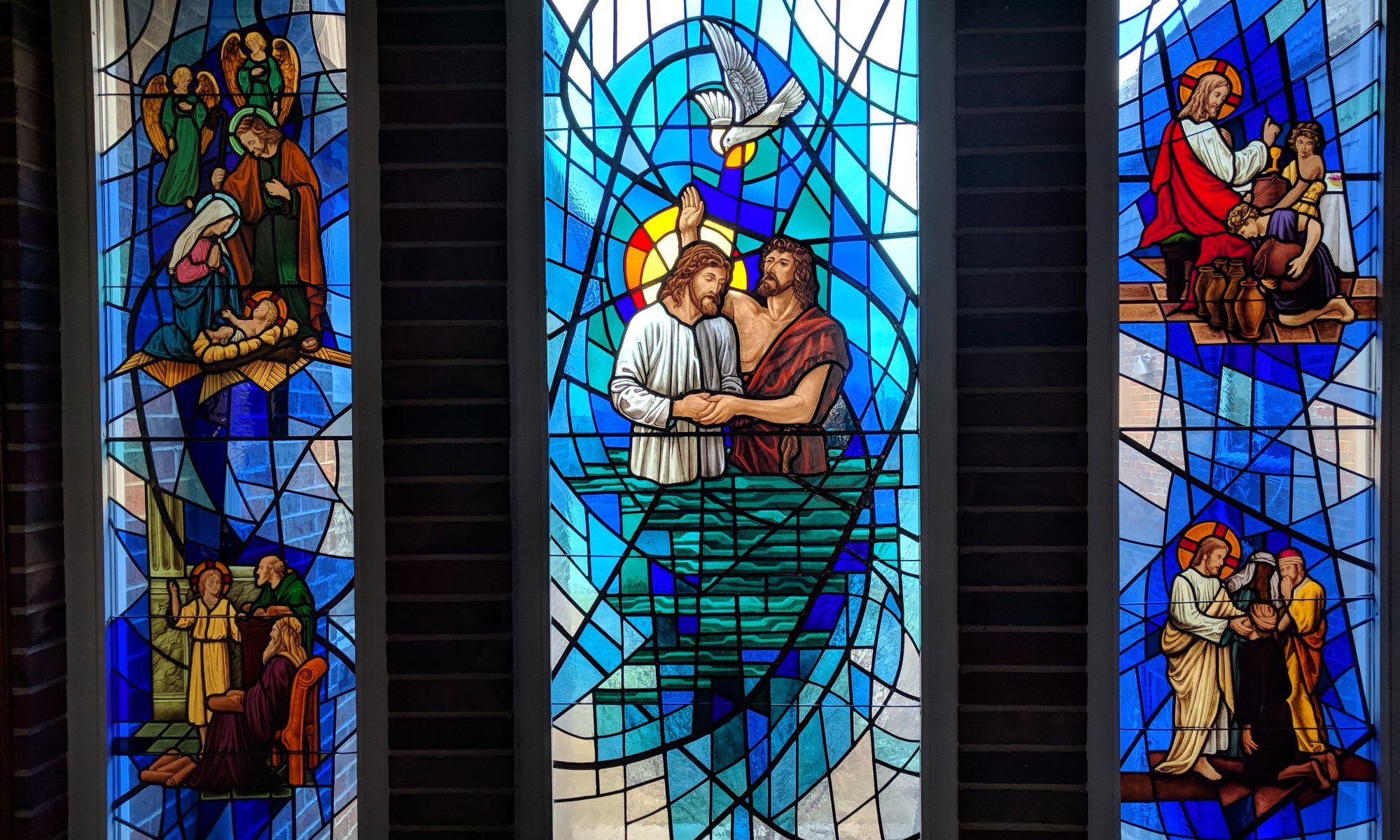
Lessons: Psalm 145, 1 John 4:7-14, Mark 10:13-16
Hymns: LSB 349, 333, 384
Grace, mercy, and peace to you from God our Father and our Lord and Savior, Jesus Christ. Amen.
On this day in (probably) 343 a pastor named Nicholas died in what is now the country of Turkey. Not much is known of him, but over the years various folklore and traditions have arisen concerning him. There are two accounts that are likely to be true about St. Nicholas.
First, he probably attended the Council of Nicaea in 325, which involved the writing of the Nicene Creed and establishing an agreed-upon date for Easter. Emperor Constantine invited all 1800 bishops to the Council of Nicaea, but only about 1/5 came. St. Nicholas is listed on some of the attendance registers. The main issue at this Council involved settling a huge controversy that was plaguing the Christian Church throughout the Mediterranean world concerning the nature and substance of Jesus. A man name Arius had gained many followers (perhaps as many as those who followed true Christianity). He wrongly taught that Jesus was created, that Jesus was not of the same substance as the Father, that He was born as an ordinary man (not divine), that Jesus was elevated to being divine, but not at His crucifixion. Arius wrongly taught that the man Jesus who died on the cross was no longer the Christ (not divine), which would have rendered the redemption of man impossible. The teachings of Arius were popular because he sought to uphold the one-ness of God. But in doing so, he denied the Holy Trinity by denying Jesus as the Second Person of the Trinity who is “very God of very God, begotten not made, being of one substance with the Father by whom all things were made.” Hundreds of years after the Council of Nicaea, a tradition arose that St. Nicholas, during a very heated debate in the Council, slapped Arius in the face for denying the divinity of Christ. Because this was not recorded earlier, it is likely St. Nicholas did not do that. But St. Nicholas is viewed as a defender of the truth of God’s Word and of the true divinity of Jesus over his participation at the Council of Nicaea.
The second account that likely happened involved St. Nicholas’s work as a pastor. In those days, in order for women to marry, they had to supply a dowry to the husband. This monetary gift would help the young newlyweds as they begin their life together. If no dowry was available, those women usually became prostitutes. One man had three daughters and had no money to give a dowry. St. Nicholas heard of it and dropped gold coins through the window at night. That money was used as the dowry and the young women all married. And that is how the tradition of gift giving became associated with St. Nicholas.
He became known as Sinte Klass in Dutch or Santa Claus in English. As one author put it, “Santa Claus has become the patron saint of a secularized Christmas” (Gene Edward Veith in the Lutheran Witness, December 2011). In many Dutch and German regions, children would set their shoes out on December 5 and the next day (today) they would find small gifts like candy or fruit or golden coins/chocolate in their shoes from St. Nicholas. I don’t think we need to cover the traditions we see today about Santa Claus at Christmas.
Lutheran author Gene Edward Veith notes, “The problem with the cult of the saints, as practiced historically, is that the saints become detached from Christ. Sailors would pray to St. Nicholas to save them from a storm, rather than to the One who calmed the Sea of Galilee. Similarly, children ask Santa to bring them gifts, instead of the Giver of every good and perfect gift. Actual saints, however, point not to themselves but to Christ. It wasn’t their supernatural virtues that made them saints. Rather, it was their faith in Christ” (ibid)
St. Nicholas was a saint for the same reason you and I can be considered saints. We are redeemed by the Blood of Jesus. As our reading from St. John teaches, God “loved us and sent his Son to be the propitiation for our sins” (1 John 4:10). Our actions—even our best works—do not make us holy, for the stain of sin remains. Instead, someone else must make us holy. Jesus did just that when He took our sins upon Himself and paid for them all on the cross. He suffered the wrath of God in our place. He is the Propitiation for our sin. In God’s mercy, our sin is replaced with the very righteousness of Christ. Therefore, we are renewed in Christ through our Baptism that we can be counted as holy ones—saints—who have been purified by the Blood of the Lamb.
St. Nicholas is said to have had much compassion on children, giving them gifts. Our reading from 1 John reminds us to love one another. We love because God first loved us. To love our neighbor means we want them to have what we have. When we love, we are generous toward them, we forgive them, and we ensure know they know the saving Gospel. Our world understands love to mean tolerance, acceptance, and the promotion of sinful vices such as sexual deviancy, greed, and false belief. But that, my friends, is not love at all. It is a rejection of God’s created order, a denial of His Word, and a path toward temporal and eternal destruction.
Jesus shows His compassion on children by blessing them. He lovingly rebuked the disciples, saying, “Let the children come to me; do not hinder them, for to such belongs the kingdom of God” (Mark 10:14). As we prepare to celebrate the birth of our Lord, we must keep these words in mind. Instead of laying before our children the mystery of the incarnation and the birth of Jesus, our world prefers to fix our children’s hearts and minds on an omniscient Santa. Many families—even among devout Christians—spend more time promoting this Santa over their Savior. Just think how much better things would be if our focus were truly on Jesus throughout Advent and Christmas instead of all our attempts to please children by loading them up with more sugar and stuff. That stuff will break or be forgotten. But Jesus will always be here. He will also be ready to bless. He is always ready to absolve. He is always ready to receive His children into His eternal kingdom.
For Jesus grants us the greatest gift. While the wages of sin is death, the free gift of God is eternal life in Christ Jesus our Lord. Through the Word and Sacraments, we are presented with Christ our Savior. His gift to us is the forgiveness of sins, the resurrection of the Body, and the life everlasting. Therefore, behold Jesus as your King—your Lord—and your Savior. Amen.
The peace of God which passes all understanding keep your hearts and minds in Christ Jesus to life everlasting. Amen

